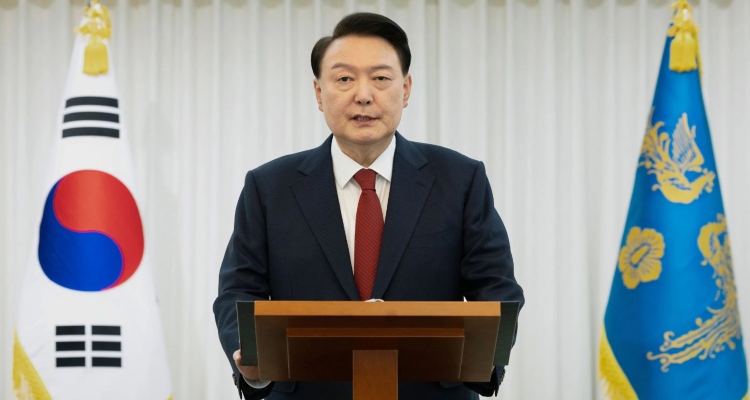
Suspended South Korean President Yoon Suk Yeol on Wednesday has declined to comply with 2 summonses from anti-corruption authorities investigating his controversial martial law declaration earlier this month.
As of 10 a.m. (0100 GMT) on Christmas Day, Yoon failed to appear for questioning by the Corruption Investigation Office for High-ranking Officials (CIO), which had issued its second summons following an earlier ignored request last week.
An official from the CIO stated they would continue to wait for Yoon while considering further steps, including a potential arrest warrant. “We will need to review the case thoroughly before making any decisions.”
Yoon also disregarded a separate summons from prosecutors on December 15 regarding the same issue. The repeated refusal to cooperate has drawn sharp criticism, with opposition leaders calling for his arrest, citing concerns about possible evidence tampering.
The controversy stems from Yoon’s martial law declaration, issued briefly this month and widely criticized as an overreach of power. In a televised address on December 7, Yoon stated, “I will not evade legal and political responsibility for my actions.”
However, his subsequent defiance of legal summonses has raised questions about his accountability.
On December 14, the South Korean parliament impeached Yoon over his actions, triggering a Constitutional Court trial to determine whether he will be permanently removed from office or reinstated. The impeachment and ongoing investigations mark a significant test of South Korea’s democratic institutions and rule of law.
Multiple agencies, including the CIO, prosecutors, and police, are conducting investigations into Yoon and other officials involved in the martial law declaration. Potential charges include insurrection, abuse of power, and other crimes.
Notably, insurrection is one of the rare offenses for which a sitting South Korean president does not enjoy immunity.
Despite the mounting legal challenges, Yoon’s legal team has indicated his willingness to participate in court proceedings. A lawyer advising Yoon stated, “He is prepared to present his views in person during legal proceedings related to the martial law declaration.”
The unfolding situation has captured national attention, with critics accusing Yoon of undermining accountability while his supporters argue for a fair legal process.
The Constitutional Court’s ruling on Yoon’s fate will likely shape the trajectory of South Korea’s political and legal landscape in the months ahead.




